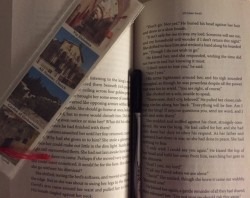

In answer to some of the many questions posed to me, I am going to devote the next few blogs to writers. I hope you non-writers will bear with me. Most of us have a story inside of us. Some of us will record that story for others to read, even if it is only meant to be shared with our great-grandchildren on some day far into the future. But for those of us who have wild imaginations that will not shut off or who have a burning desire to share stories, what next? What do you do after you have written your first book?
I probably shouldn’t assume this, so let me backtrack a moment. Not everyone who writes a book has done the study needed ahead of time to know how to tell the story in a way that readers will want to read it. I was one of those people. I wrote a two-volume epic on King David before I knew a thing about writing. Believe me when I say you would not want to read that draft of what is now the Wives of King David series.
Before a writer sits down to write, some things should be in place. A working knowledge of story is key. In other words, the writer needs to study the craft before sitting down to write. Now not all of us come about it that way, and that doesn’t mean just writing to write is wrong. But to sell a story, a writer needs a working knowledge of the craft, and basic though it may be, it can take years of study to fully understand storytelling as a professional career option.
Think of it this way. If you want to become an engineer or a surgeon or a world-class painter or a brilliant musician, you would go to college, take post graduate classes, study under gifted artists, or take music lessons before you could even begin to pursue your dreams. Yet writers are not always treated the same way. One thing I’ve noticed since my journey of publication started is that a lot of people think that anyone can write a book. But if they took the time to sit down and do so, they would quickly realize, it’s not as easy as it sounds.
The idea for a book is easy. The crafting of a novel is not. That is where study comes in.
You have to learn the craft before you are ready to sell your work.
So how do you do that?
There are a number of ways. You can teach yourself by reading books on writing. You can take classes from published authors (these are given at conferences, though some may be available online as well.) Read the types of books you want to write. Dissect your favorite author’s work until you can figure out how they did what they did. Read, read, read. Write, write, write. (Notice I did not say take English classes and learn lots of grammar skills. For while these things are helpful, even necessary, they are not to major tools of a working writer.)
You could compare the writing journey to a child with her first music lessons. In the beginning, the child learns the very basics of hand position on the keys or strings. They learn the chords or notes and where they fall on the keyboard. They start out by mimicking the masters until, after years of practice, they become masters themselves.
Words are like musical notes. They hold meaning and yet they can be transposed into all manner of various compositions or creations. But they must still conform to a certain pattern in order to make sense, to evoke emotion, to give meaning to the listener or reader.
So – you’ve written your first book. Great! Now go back and see if you wrote it understanding the craft or just wrote as I did, because the words flew from your fingers to the page. Just because the words come to us, doesn’t mean they are publishable words.
More – next time.
Selah~